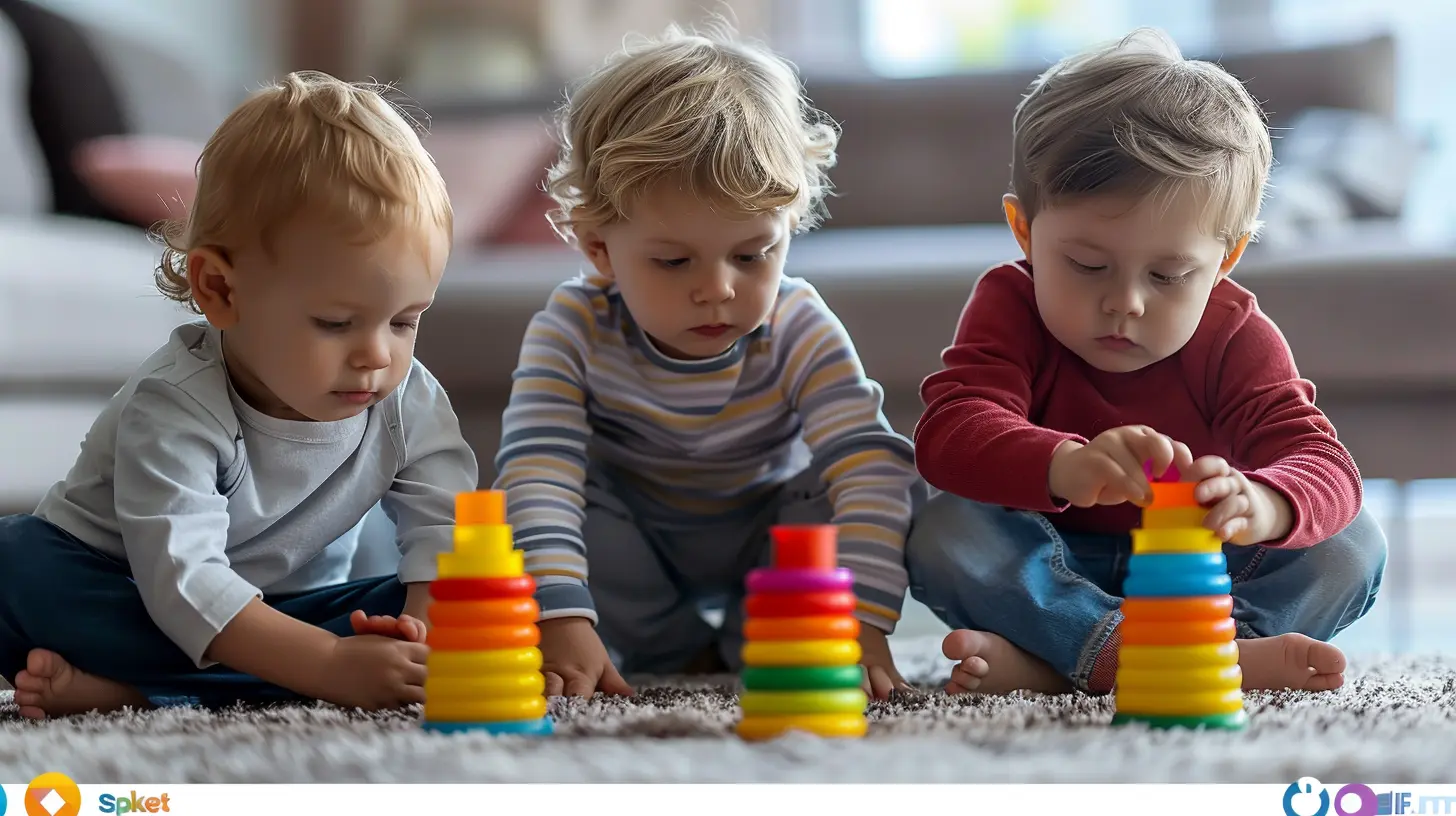How Parental Involvement Influences Cognitive Growth
2 September 2025
As parents, we all want the best for our children. We dream of them growing up to be intelligent, capable, and emotionally strong. But did you know that the way you engage with your child daily plays a significant role in shaping their cognitive abilities? It's not just about genetics; it's also about environment and interactions.
In this article, we’ll break down the science behind parental involvement and cognitive growth, why it matters, and how you can make a real difference.

What is Cognitive Growth?
Before we dive into the role of parents, let's first understand cognitive growth. Simply put, cognitive development refers to how a child learns, processes information, solves problems, and adapts to new experiences. This includes memory, attention, reasoning, and language skills.From birth to adolescence, the brain undergoes rapid development. The connections formed during this period are heavily influenced by experiences, surroundings, and social interactions—especially with parents.

The Science Behind Parental Involvement
Neuroscience has proven that the brain is incredibly adaptable (a concept known as neuroplasticity). This means that children's brains are constantly shaped by their interactions. The more engaging and stimulating their environment, the stronger and more efficient their cognitive abilities become.Studies show that when parents actively participate in their child's learning—reading, talking, playing, and problem-solving together—it fosters important neural connections. This directly impacts critical thinking skills, language development, and emotional intelligence.
The Role of Early Interactions
From the moment a baby is born, they are absorbing information like a sponge. Their first teachers? You, the parents.- Talking to your baby frequently helps build language skills and increases vocabulary. Even simple conversations like describing what you're doing or asking questions can make a difference.
- Reading together from an early age enhances comprehension skills and strengthens the bond between parent and child.
- Playing interactive games like peek-a-boo or puzzles promotes problem-solving and spatial awareness.

The Impact of Parental Involvement on Cognitive Growth
Let’s explore the different ways parental engagement influences a child’s cognitive development.1. Language and Communication Skills
The words you speak to your child today shape their ability to communicate effectively in the future. Research suggests that children who grow up in language-rich environments develop stronger verbal skills.Parents who engage in conversations, storytelling, and reading contribute to their child's:
- Vocabulary expansion
- Sentence structure understanding
- Listening and comprehension skills
2. Problem-Solving and Critical Thinking
When parents encourage curiosity and allow their children to explore different ways of thinking, they foster problem-solving skills. Asking "why" and "how" questions challenges kids to think critically and analyze situations.For example, instead of giving direct answers, guide them with open-ended questions:
- "What do you think will happen if we mix these colors?"
- "How would you solve this puzzle?"
This kind of interaction builds cognitive resilience and a strong analytical mindset.
3. Emotional Intelligence and Self-Regulation
Cognitive growth isn’t just about intelligence; it’s also about understanding emotions. When parents acknowledge their child’s feelings, they teach emotional regulation.- Encouraging kids to talk about their emotions improves self-awareness.
- Teaching them how to handle frustration or failure enhances problem-solving skills.
- Modeling empathy teaches them how to understand others' perspectives.
4. Academic Success and Lifelong Learning
Children with involved parents tend to perform better in school. Why? Because early engagement instills a love for learning.Parents who make education a priority at home set the foundation for:
- Better focus and attention span
- Increased motivation to learn
- Stronger memory retention
5. Creativity and Imagination
Parental involvement isn’t just about structured learning; it’s also about encouraging creativity. When children are given the freedom to express themselves through art, music, or imaginative play, they develop cognitive flexibility.Parents who nurture creativity help their kids think outside the box, which is essential for innovation and problem-solving in the future.

How Parents Can Boost Cognitive Growth
Now that we understand the importance of parental involvement, let’s look at practical ways you can actively support your child's cognitive development.1. Read Together Every Day
Reading isn’t just for bedtime. Even a few minutes a day can significantly impact your child’s language and comprehension abilities. Make it a habit to read books, discuss stories, and ask engaging questions.2. Encourage Open Conversations
Talk to your child like they matter—because they do! Ask them about their day, answer their questions, and encourage discussions. Their curiosity will flourish with meaningful conversations.3. Provide Stimulating Challenges
Introduce activities that challenge their thinking, such as:- Puzzles and brain teasers
- Strategy games like chess
- Simple science experiments
These activities enhance problem-solving and logical reasoning.
4. Limit Screen Time and Encourage Hands-on Play
Screens can be educational, but too much passive consumption isn’t ideal for cognitive growth. Instead, focus on hands-on play:- Building blocks
- Drawing and painting
- Outdoor exploration
These activities strengthen motor skills and imagination.
5. Be a Role Model for Learning
Children imitate what they see. Show them that learning is a lifelong journey by reading books, asking questions, and exploring new interests together.6. Promote a Growth Mindset
Teach children that intelligence isn’t fixed—it grows with effort and persistence. Praise their hard work rather than just their intelligence:- Instead of saying, "You're so smart," try, "You worked so hard on that!"
- Encourage them to embrace challenges rather than fear failure.
This mindset fosters resilience and a love for learning that lasts a lifetime.
Final Thoughts
Parental involvement is more than just supervising homework or attending parent-teacher meetings. It’s about creating an enriched, engaging, and emotionally supportive environment. Every conversation, interaction, and shared experience helps shape your child’s mind.So, whether it's reading a bedtime story, answering endless "why" questions, or simply playing together—know that you're making a lasting impact on their cognitive growth. Your presence, encouragement, and guidance lay the foundation for your child's future success.
all images in this post were generated using AI tools
Category:
Cognitive DevelopmentAuthor:

Jenna Richardson
Discussion
rate this article
1 comments
Evelyn McAlister
Thank you for this insightful article! It beautifully highlights the crucial role parental involvement plays in cognitive development. As a parent, I appreciate the practical tips shared, and I’m inspired to engage more meaningfully with my child's learning journey. This information is invaluable for fostering growth and curiosity.
September 19, 2025 at 2:23 AM

Jenna Richardson
Thank you for your thoughtful feedback! I’m glad the article resonated with you and may inspire meaningful engagement in your child's learning journey.


